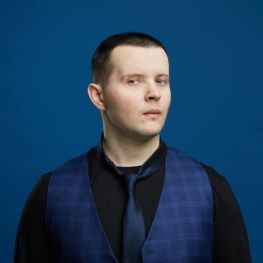Vote by Sharing
Unite 100 000 Women in Tech to Drive Change with Purpose and Impact.
Do you want to see this session? Help increase the sharing count and the session visibility. Sessions with +10 votes will be available to career ticket holders.
Please note that it might take some time until your share & vote is reflected.
Session: Disability-Centered AI And Ethics
AI algorithms can be used to augment smart wheelchairs, walking sticks, geolocation and city tools, bionic and rehabilitation technologies, turn sign language into text, or visual objects into transcriptions, support cognitive impairments - through expressive computing and social robotics. These algorithms also fuel a range of systems used by the general population (“assistive pretext”):Despite the significant possibilities of AI, disability is not a monolith, but a social spectrum that requires special attention and may pose challenges for algorithms associated with proper recognition, analysis, predictions and outcomes.
In particular, Al systems can make errors or lack accessibility towards individuals with sensory, cognitive or physical impairments in the context of the workplaces, educational, public or law-enforcement scenarios, including:
Individuals with facial differences or asymmetry, craniofacial syndromes
Different gestures, gesticulation, posture;
Speech impairment, specific communication styles;
Used assistive devices or technologies;
Negative connotations for semantics associated with disability keywords and phrases (e.g. language-based systems);
Be less accurate towards “invisible“ disabilities, women (“gender-blind“) or particular populations.
Session explores:
how different AI systems and ontologies, including expressive computing, may interact with different spectrums;
investigate historical and statistical contexts of errors and distortions;
explore approaches to data, models, systems oversight;
explore policies and frameworks to systems categorization, scenarios, risks and oversight.
Key Takeaways
- AI for assistive technologies
- AI policy and algorithmic risks
- Social studies behind it
- Responsible development of social, soft robotics
Bio
Yonah Welker is a serial technologist, public expert, and voice for advancing the development of algorithms and policies to advance society, human capacity, and designated groups and spectrums, including those with cognitive and neurodisabilities, such as social and human-centered AI, robotics, emerging learning, work, health, and city solutions. Yonah Welker has made over a hundred appearances and published commentary to bring awareness to social technologies and policies. Prior to these efforts, Yonah Welker was co-founder of the Hardwaretech think tank, co-created tech ventures and projects, served as an entrepreneur and innovator in residence, and an evaluator and expert for technology transfer and innovation ecosystems in EMEA/APAC, North America regions, including funds, authorities, and EU Commission-funded projects. Yonah Welker’s commentary has been featured by the White House, the World Economic Forum, Forbes, OECD, and UNESCO.


